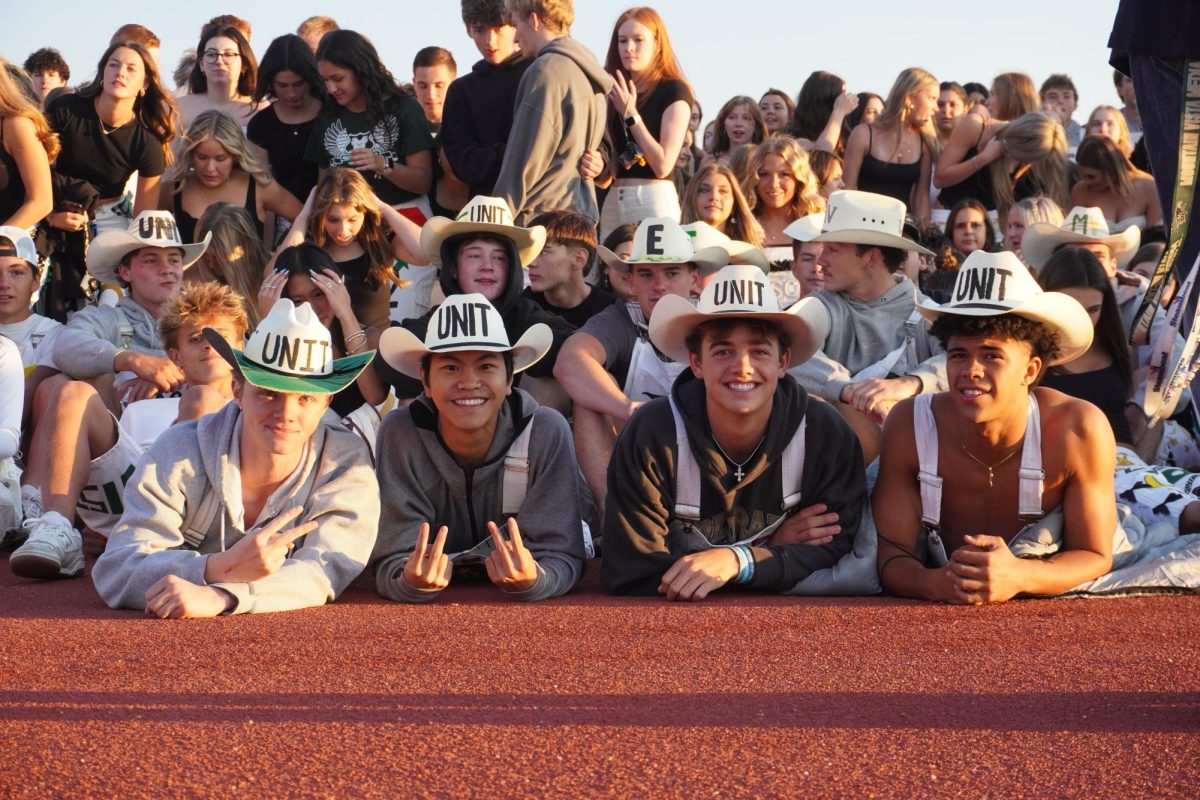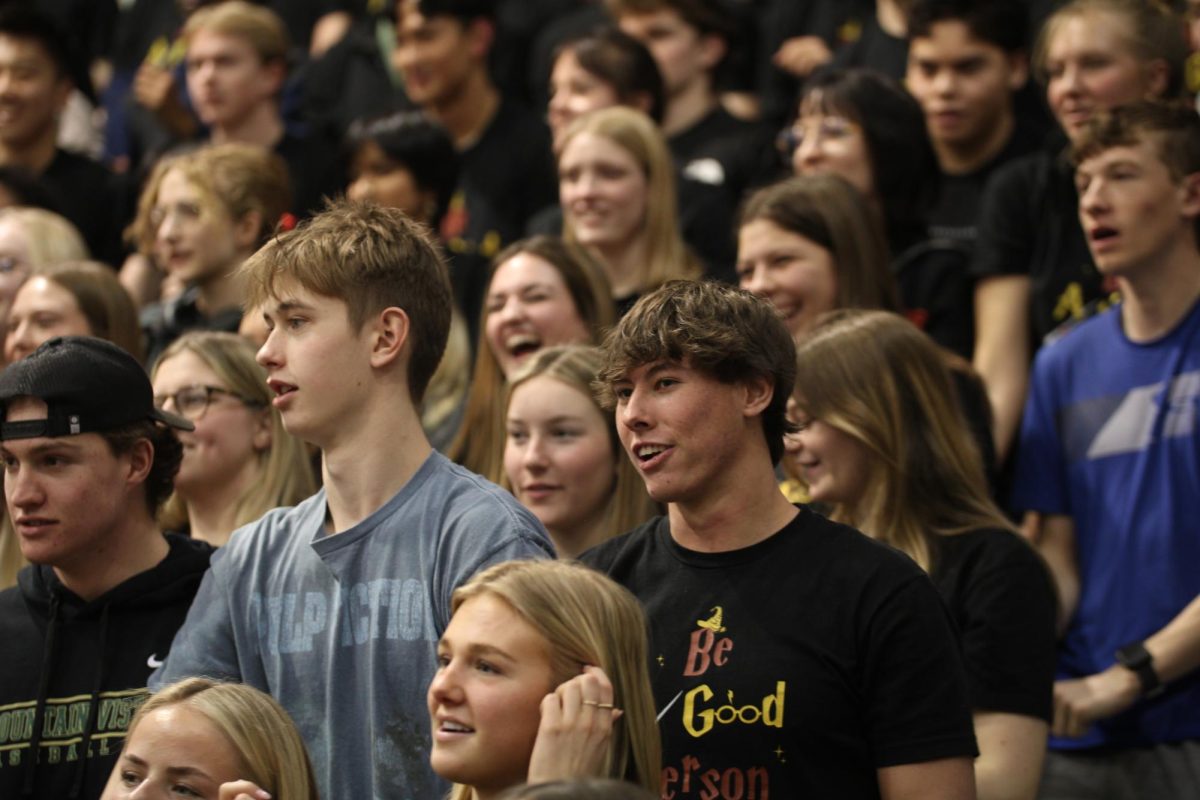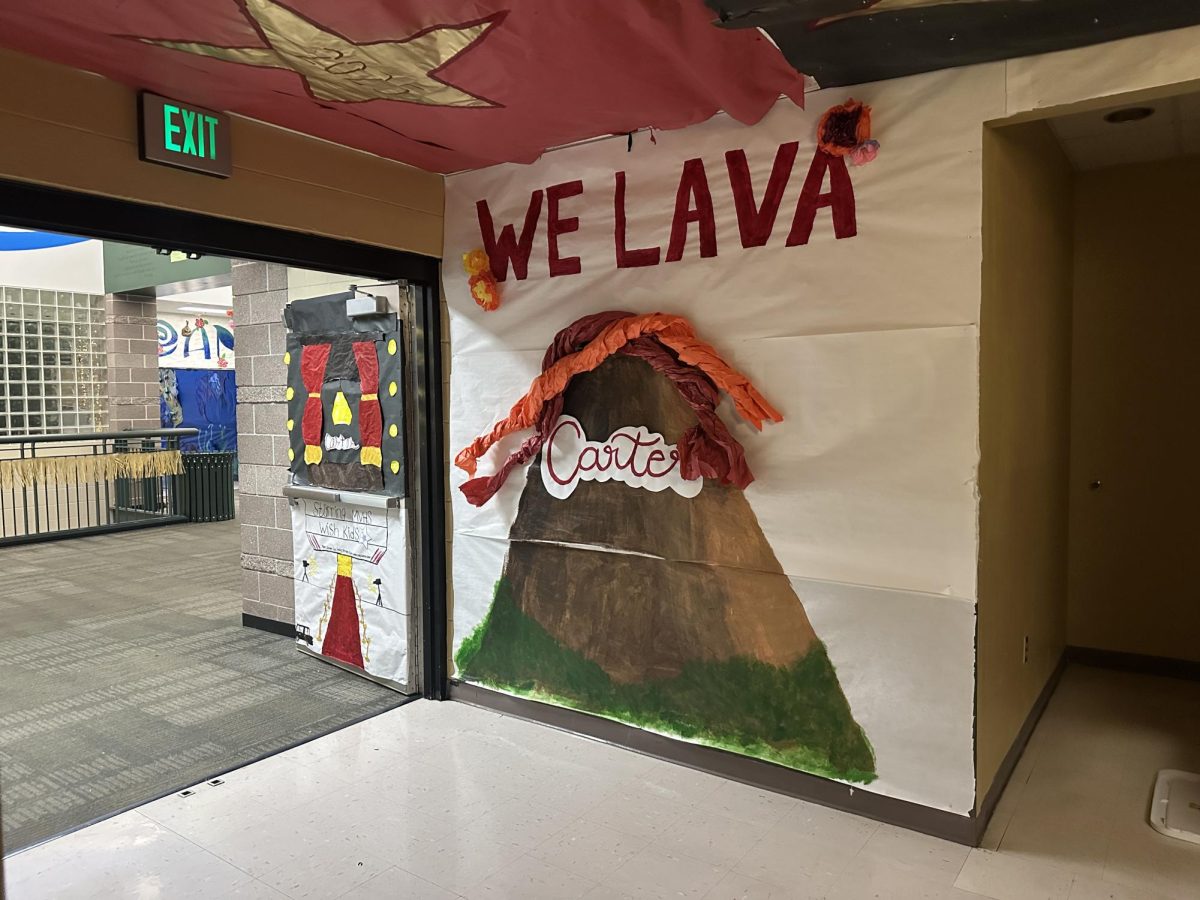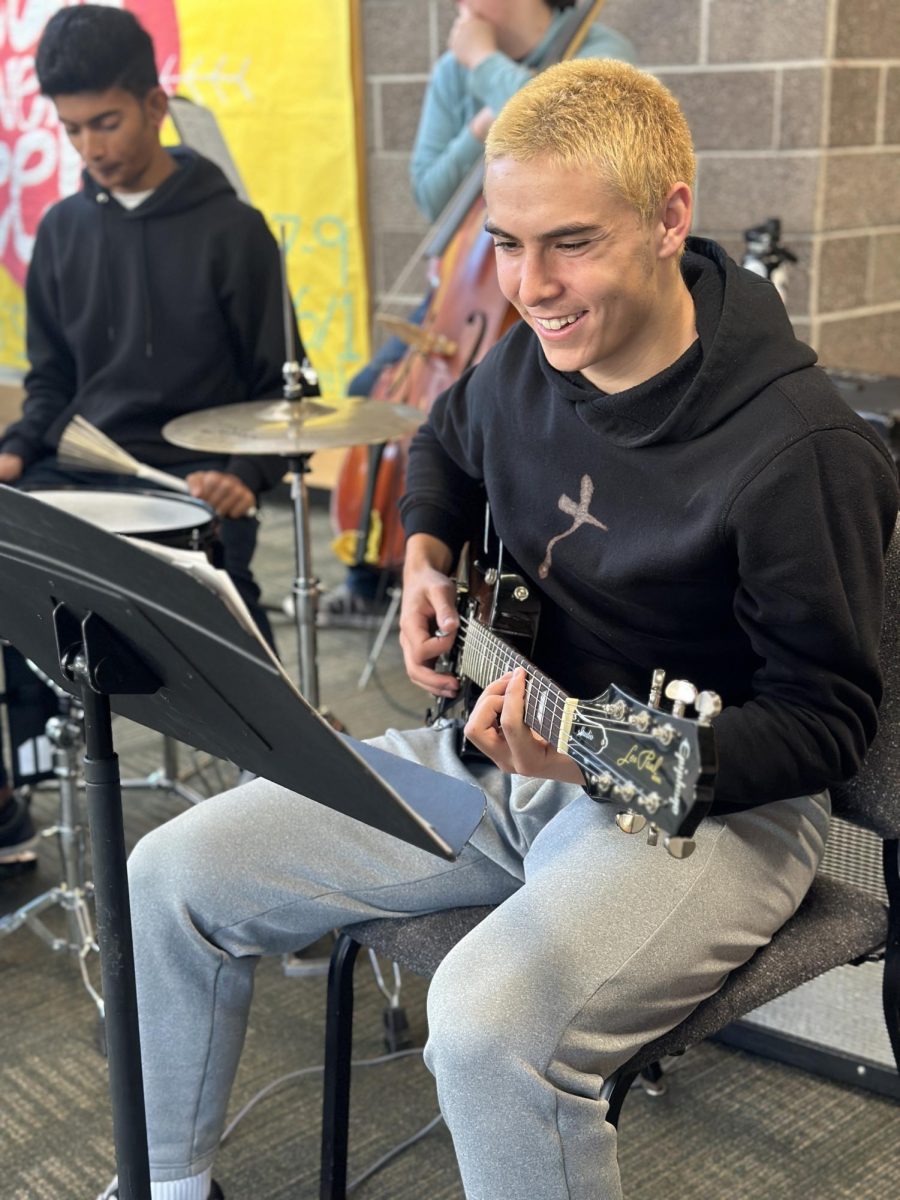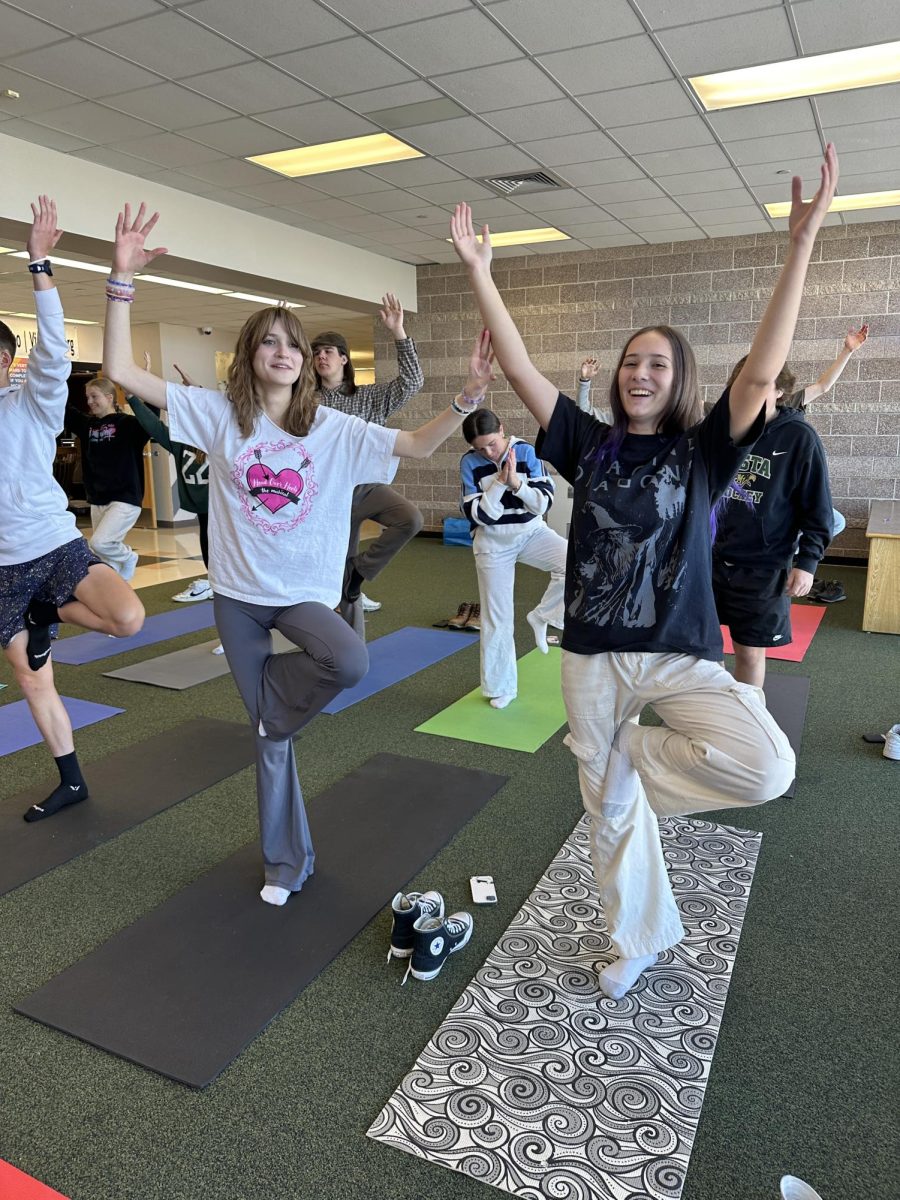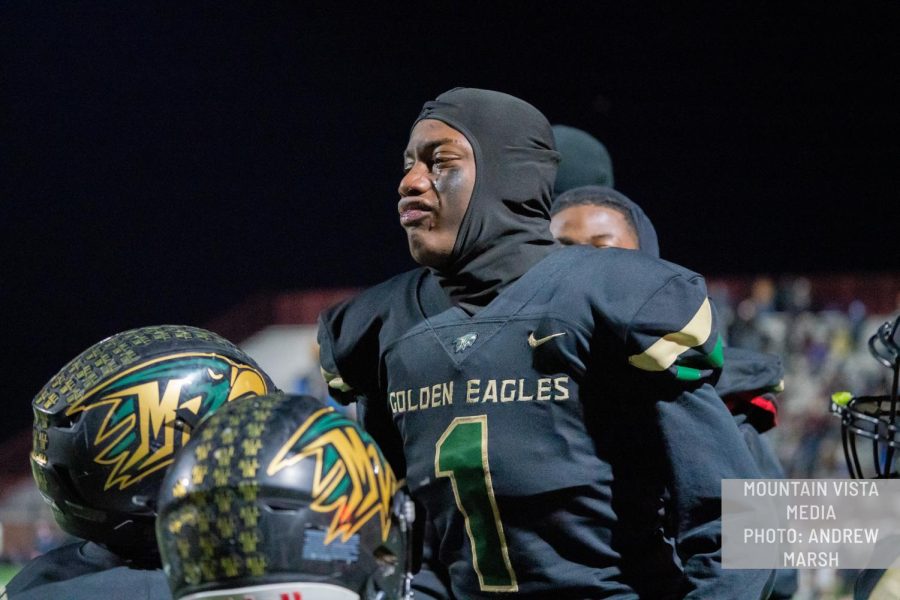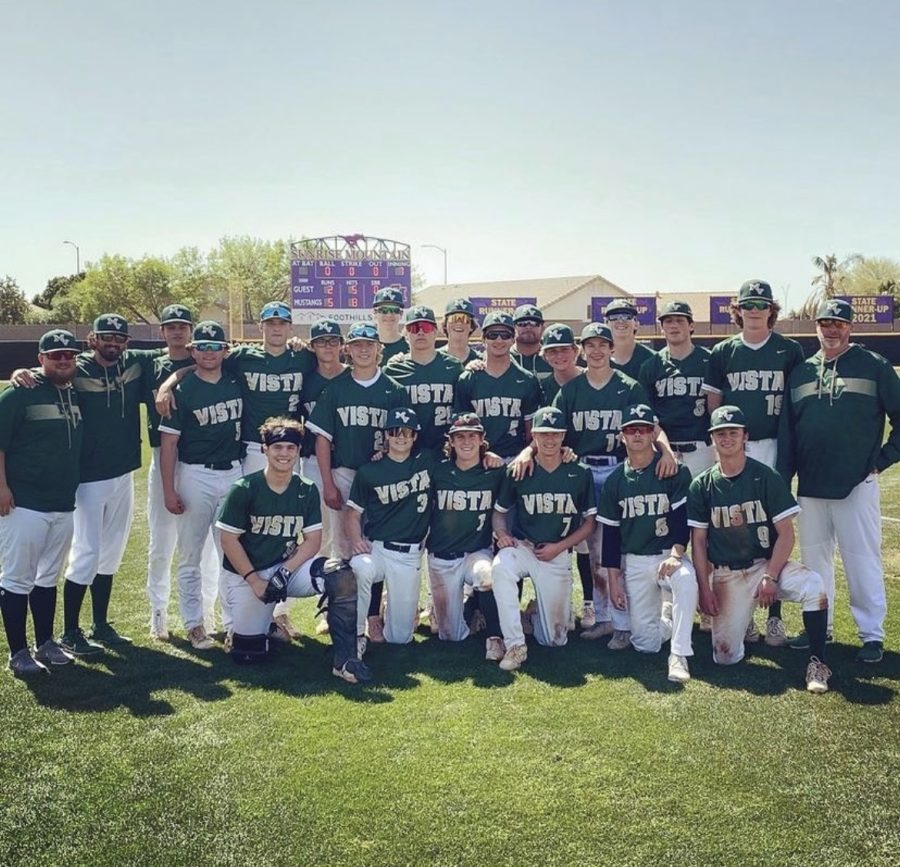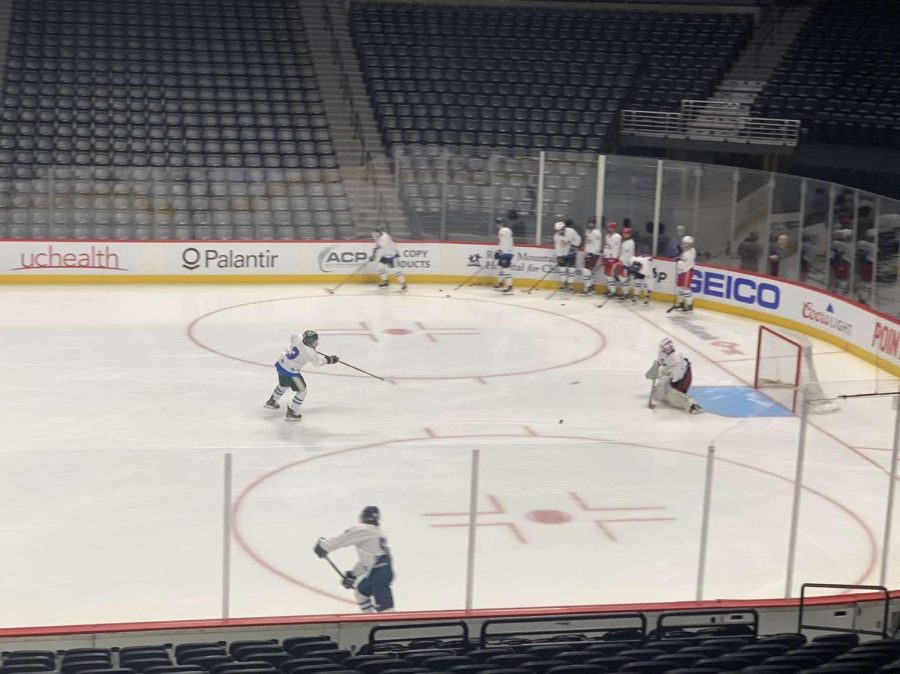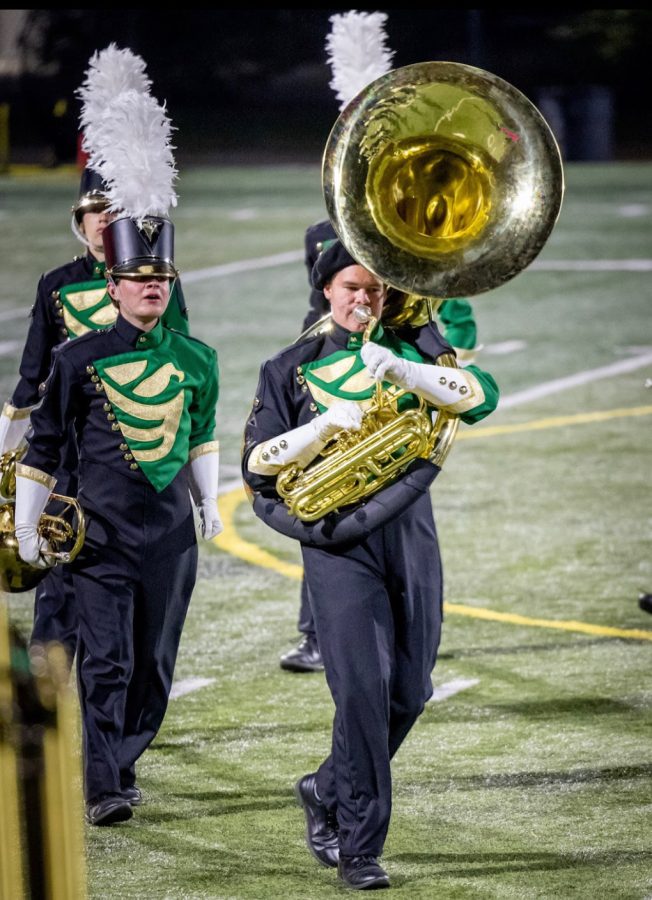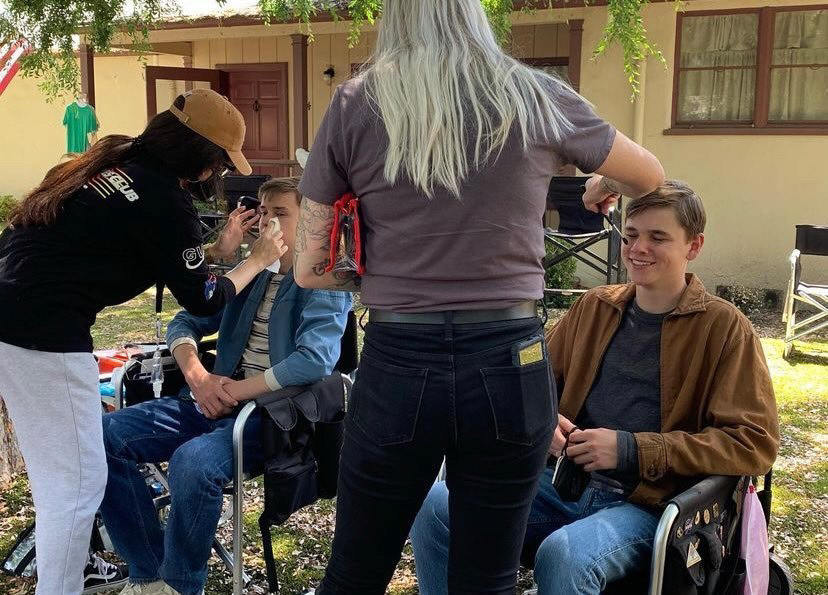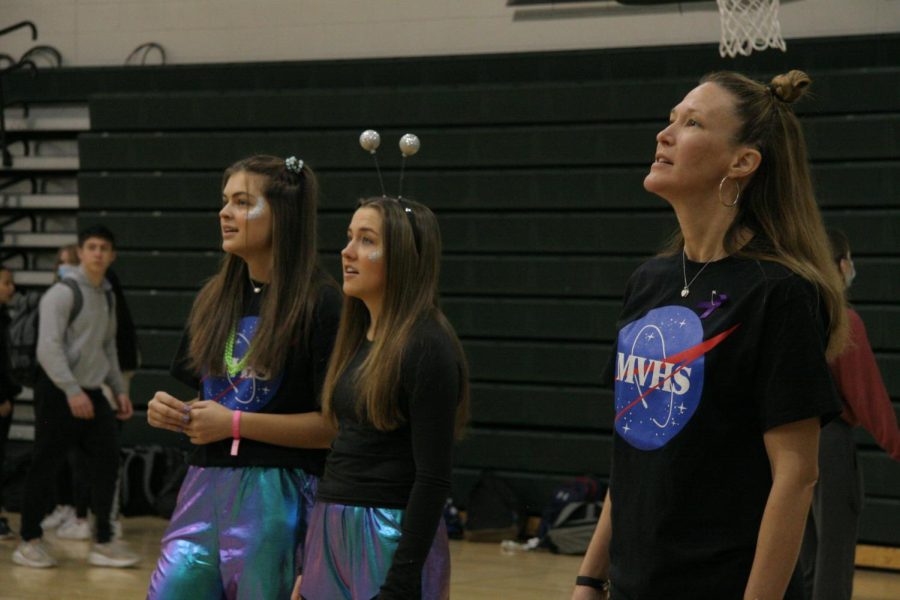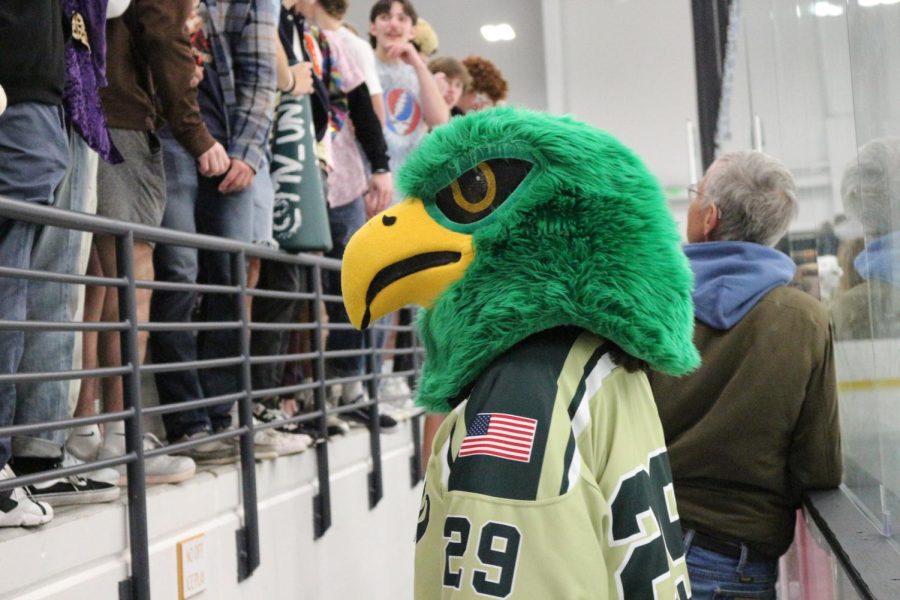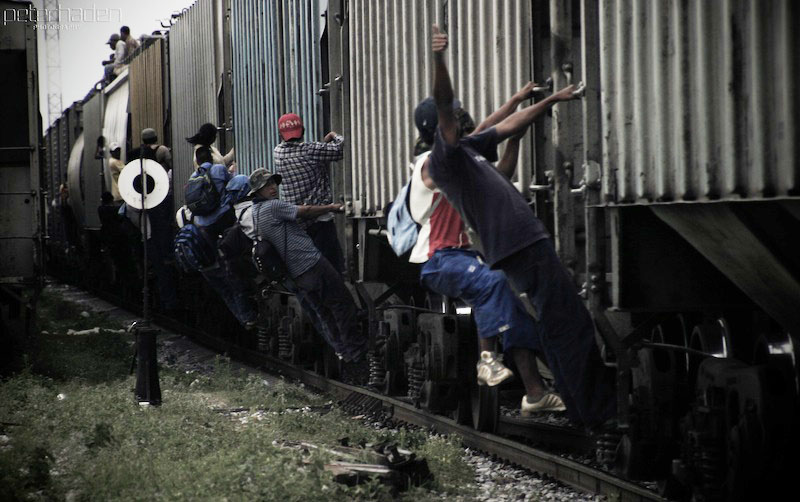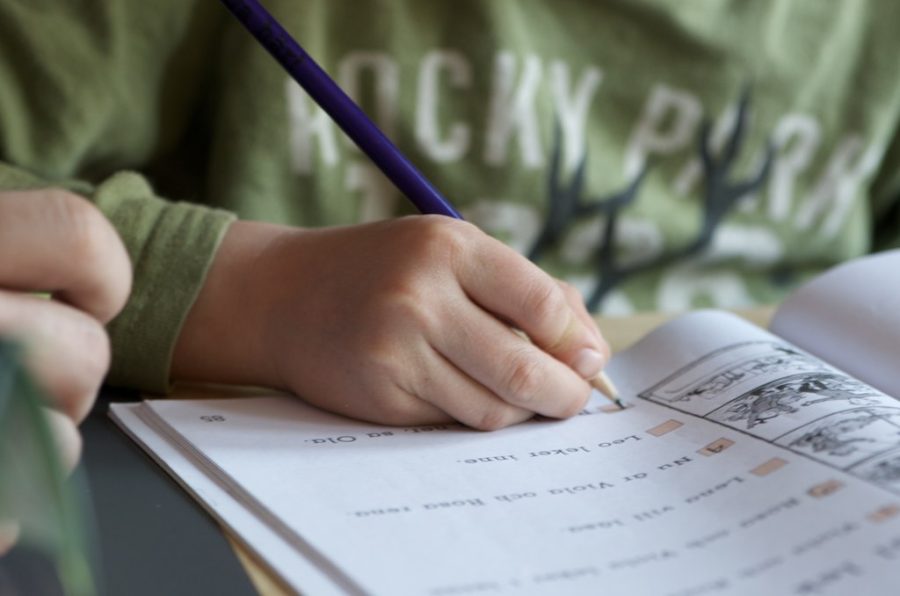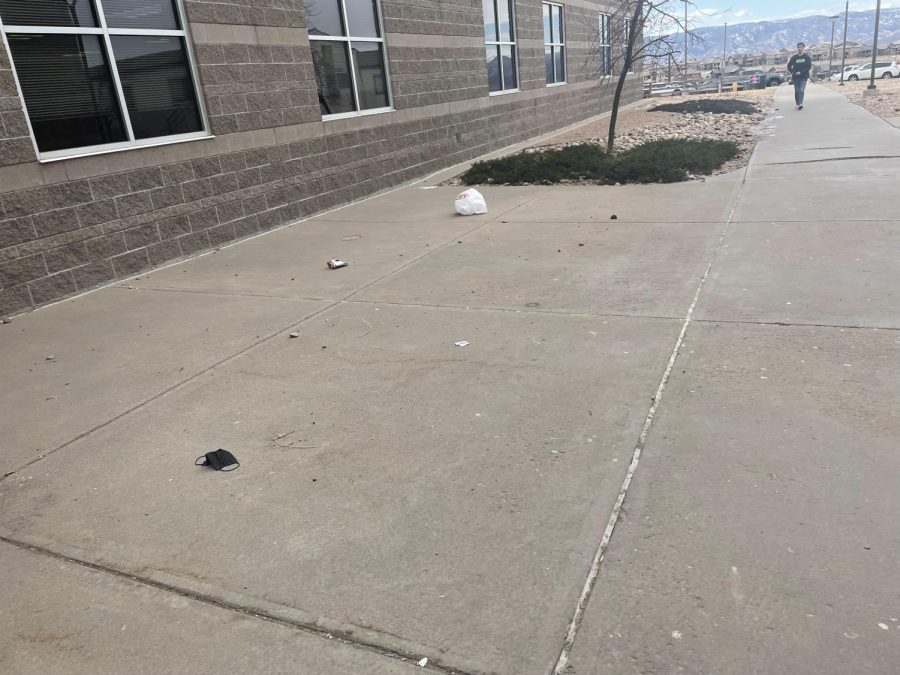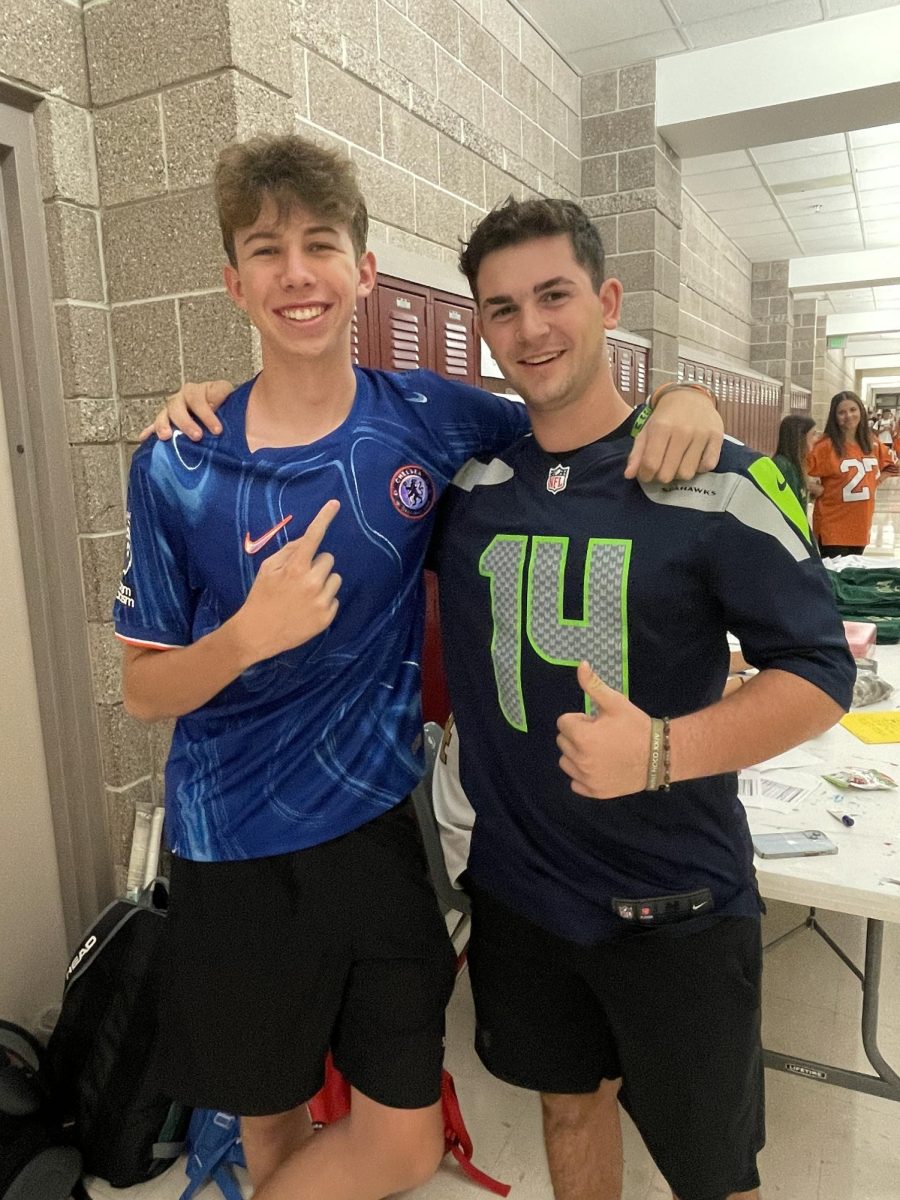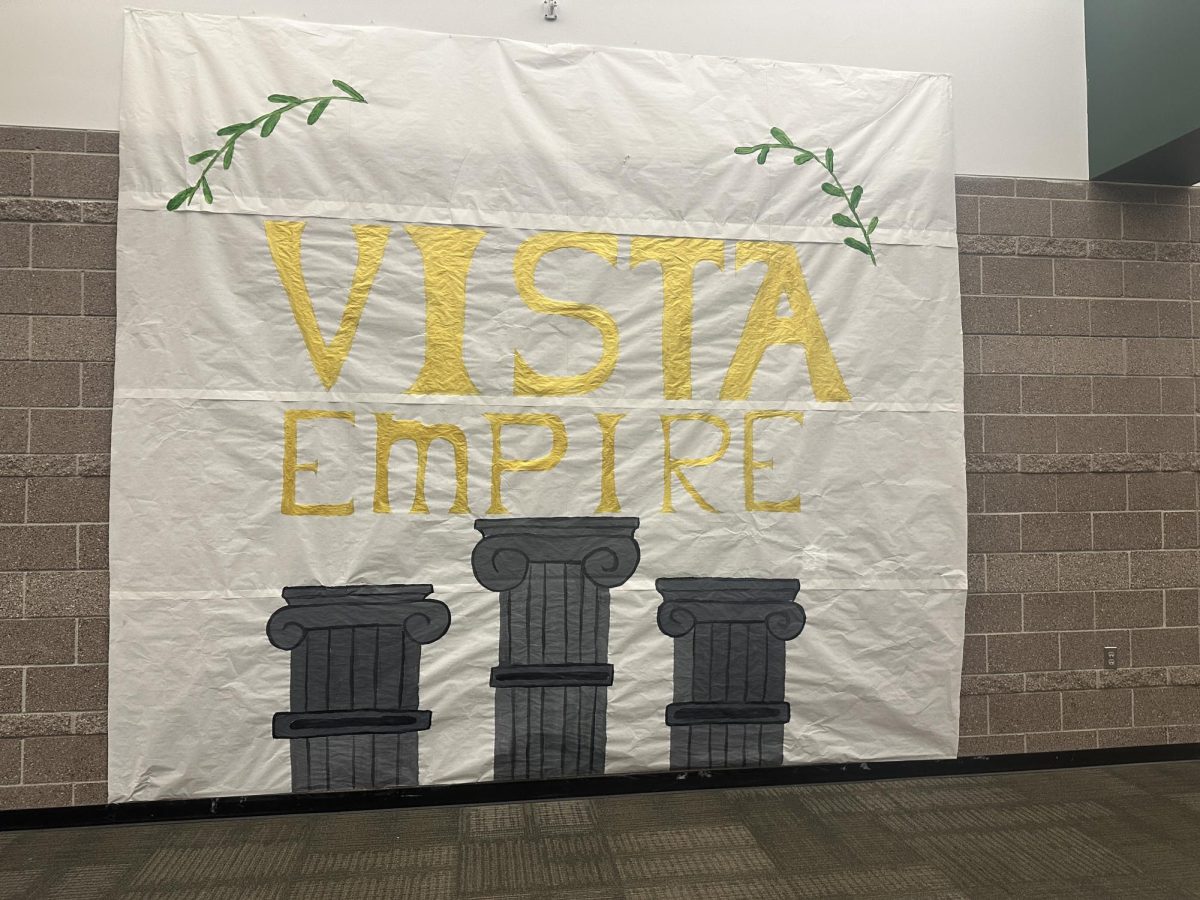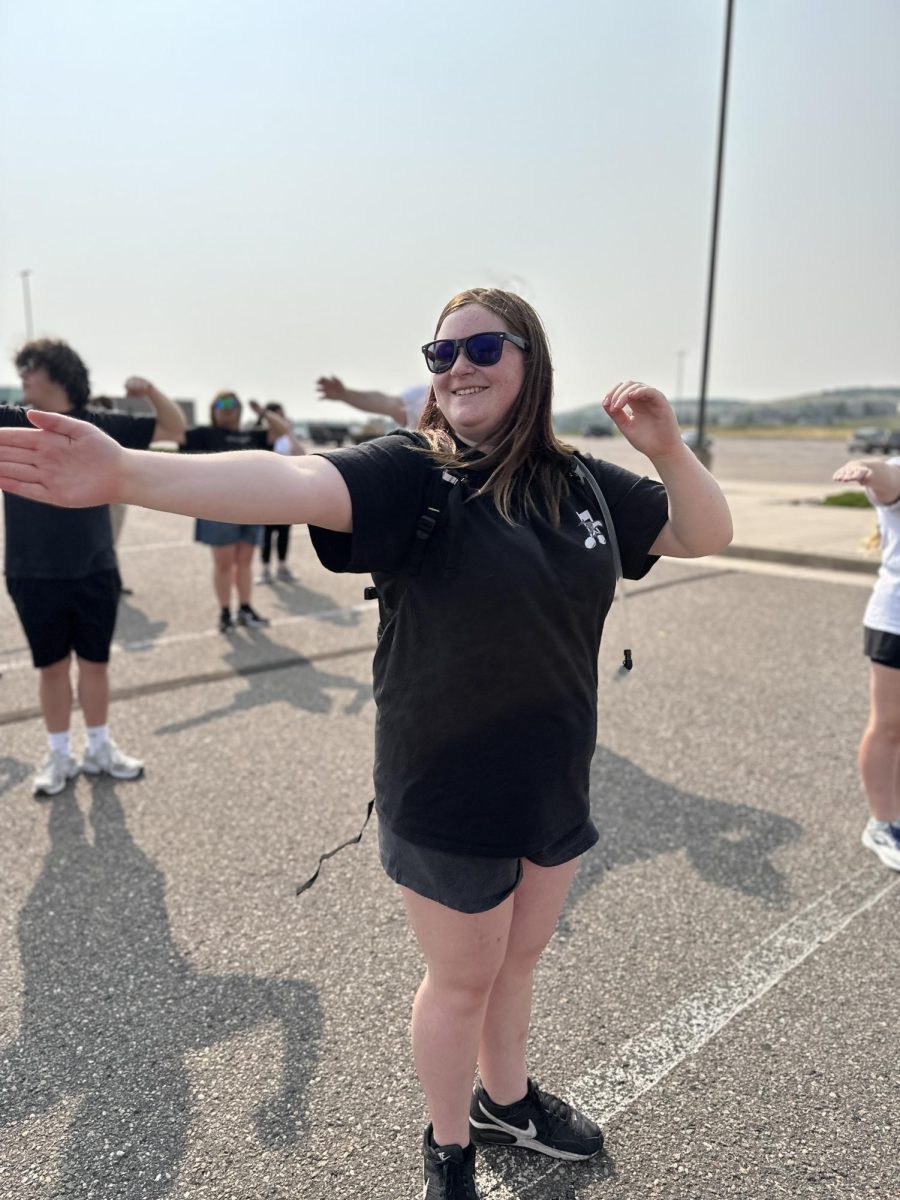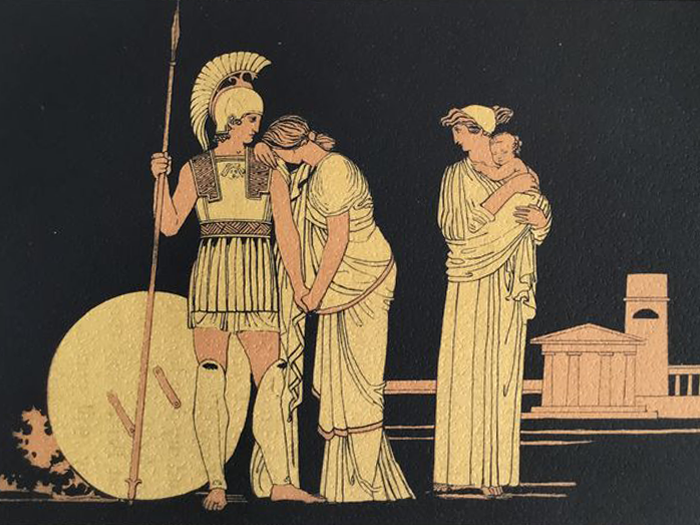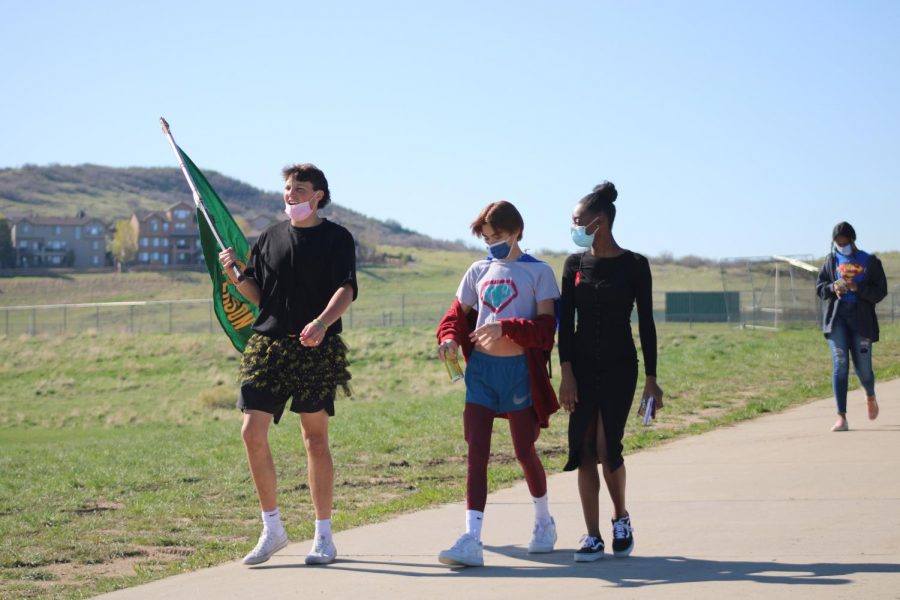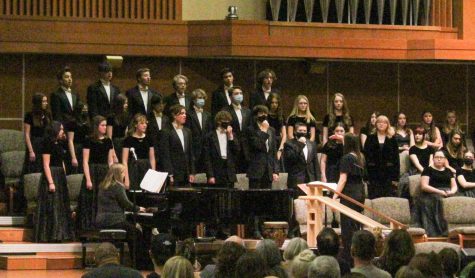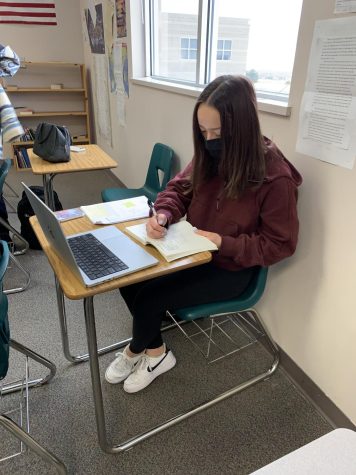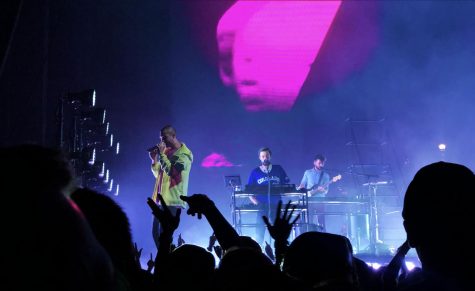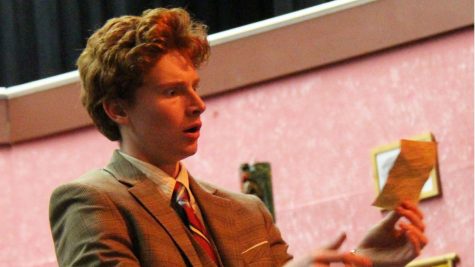THE VISTA DIARY: Chapter One
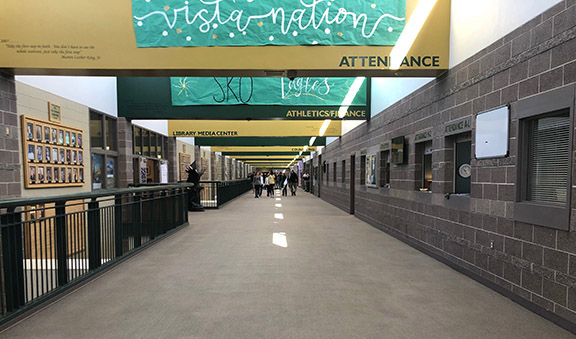
//EDITED BY JULIA KLUG//
Presented by Creative Writing II students in second semester 2019.
The Curb
Vista drop-off loop
By Abbey Johnson
It is brisk here, and I got quite a few stares as I marched out here to sit on the sidewalk by the drop-off loop. I was more stubborn than I was sheepish and I let the wave of embarrassment wash over me like I was simply getting splashed by a kid in an inflatable pool. As soon as I am hit with the cool air, I’m bombarded by the smell of baked asphalt and concrete even though everything is covered in a crisp white blanket of ice, but at the same time, it smells like nothing. It smells like red lockers and tile floors or gym uniforms and old sweets on the front desk. It smells like my deepest sadness and my greatest joy. Smells like the first day of school and the horrors of finals. It smells like everything and nothing at the same time. It smells like ice and snow on a sunny day, and really, that’s all I have to describe it. A divine oxymoron that the human mind cannot do any justice to decipher. Oddly enough, it’s as if you have to see it, to be here at this exact moment alongside me, to catch a whiff of the non-existent existent scent. I hear the car turning a corner, and I jump up as fast as humanly possible for a teenager that spends around five hours on Netflix a weekend. A red Subaru with a slightly dented hood, probably from hitting other writers looking for a muse, reels onto the street. She glares with a sweaty and grimy visor atop her head, as if my intention was to jump in front of her, and I move near the flagpole as it sways softly in the wind, sitting upon a cold concrete circle. I know, or at least I have an inkling, that both security and the office is wondering as to what I am doing. Nevertheless, I continue to write, I am left with myself and the car for a few minutes. Her daughter, with a pearl tissue to her nose, chucks her backpack in the car like it is full of rocks and bowling balls and I can only wonder how bad her day has been. Both definitely have a story to tell, I thought, and as the car drove down the parkway, her mom was probably asking if she knew that eccentric girl who was out in the cold without a jacket. A single black sparrow joins my solitude, calling for a mate, only to never hear a rhetorical chirrup. It takes sanctuary in a padded and dense pine tree, still chirping, still looking as it shook a handful of needles from its branches. The yucca plants sway lightly, as if they aren’t just bushels of thorns, and instead, innocuous. Like perennials left in the Winter to die by an insensitive and harsh gardner. The snow has tread marks in it from animals long gone, but I am now the only one out here, the car pulled away, and the bird, still hiding within the tree. A half empty parking lot stands before me, and I wonder if that is why it’s so warm even when Jack Frost’s fingers still grace the ground, but all I get in return are the twinkling lights as the Sun hits off the glass like a kaleidoscope. The cars have a few dents in them, from hail to car crashes, and it’s indicative that I’m at a high school. All I can hear is the whipping striped-banner as it dances around on its pole from the wind, the same wind that runs it’s finger through my hair and pushes it to looking like a dying flame set adjacent to a window. A painting of grass plains and the city. Of parking lots and an empty sidewalk. Of a girl with her computer and a sparrow. A painting of everything and nothing. The bird calls again, and this time, in the distance, I hear a response. Shrill and miniscule, but there, and soon enough, I know that I will be completely alone again.
A few days later, and the snow begins to melt, drizzling along the cracks in the concrete, feeding the weeds that will inevitably sprout around spring. The sun shines, halfway in the sky, a beacon more than a star. It smells the same, like everything and nothing, except now, there’s a pinch of gasoline in the air, it’s sweet fragrance lingers long after the ignition turns off. There is something so beautiful about something so simple, like I can understand everything. The reason the sky is more cerulean than sapphire today, and why the grass grows like the Earth’s hair. Long and unruly. I can explain why the evergreen still bristles in the winter and why it has no need to shed its foliage, and I can explain why nocturnal creatures have a liking to this place at night without the bustle of the day, the only proof they’ve ever been here (or existed at all for that matter) are the little indentations in the snow. I can also explain, perhaps by the hours my parents sat me down in front of Nat-Geo on TV, why the sparrow is no longer here, and maybe, if I listened, I would hear its chirping in the distance. Happily making a nest from the trash that strangers left at High Point for its own not-so-buried treasure, with a brood of eggs waiting for it upon a pillow of dried grass and feathers. There is no red Subaru swinging into the loop, no sparrow, and the snow is beginning to make its departure once again. A few days is all it takes for the whole world to change it seems, or, at least that’s how long it takes to change in Highlands Ranch. Today, it is desolate despite the security guard doing his rounds with his chattering walkie-talkie as he runs into the school, his shoes echoing off the sidewalk. The wind calms, as if something soothes it, and I smile with the thought that perhaps the wind is welcoming an old friend.
The Orchestra’s Song
Right of the hidden orchestra door
By Tom Child
A somber melody drifts through the weighted door, the bass and cello moaning in their solos with the violins interrupting shrilly. A song of a battle, perhaps, as the cacophony picks up into a mighty crash. In this hall commemorating achievements of grimly exhausted faces that peer down at me, my soul shrinks between the tiles in search of that sweet breath of calm.
Between the shrieking shivers of my legs protesting every passing minute of my residence on the floor, I am reminded of a cripple pressed into the pages of recently-read novels. The cripple’s pride was stolen along with his front four teeth and his stride. The percussion that followed him was that of step, drag, thunk, step, drag, thunk, rinse and repeat until hands are red with the grip of a cane. I can’t help but wonder what my melody will be, whether the inky black and crimson battle song behind me will carry in my preisence like the warm perfume of a campfire. But until then, I am held hostage in this hall, the tiles and white brick that of a fantastical asylum.
To what do I owe this honor? To close my eyes amongst the screaming white pain, I can drift into that humming lull of the orchestra beyond. The violins, chattery birds greeting me on the earliest of mornings, an irritating but necessary additive. But the basses and cellos, with that low warmth in their chorus, truly capture me and buzz against the asylum’s walls. Perhaps they are my escape.
Then again, within the pages, the crippled percussionist broke free of his inhibitions, tearing down the walls of his confinements. I will escape, but not to that exuberance. Accompanied by these battle songs I will rise, not without pain, but not without determination either.
The Confidence That Comes From Playing the Biggest Instrument
The interior band hallway
By Elyssa DeVisscher
You look so sad when you’re not playing.
He looked wistfully at the director, who was currently preoccupied with a section other than his own. The instrument that he plays is deep and regal. It is composed of maple wood, though the looks more like mahogany. It smells fresh and crisp, like lumber with a hint of leather. The instrument has the smooth, polished aesthetic of most every musical vessel, but in addition to this, it has a low voice that resonates through the entire room. The instrument sneaks its ostinatos into the subconscious of the listener and leaves its impact long after the fleeting and soaring voices of the higher instruments have departed their mind. Its strings are thick and need to be persuaded to let out the player’s desired note. The body of the instrument is large which allows its noble sound to emanate and be heard by all.
So why wouldn’t a musician look sad when he has a world of music at his fingertips but he is told to practice silence?
Stories of Old
Band hall trophy case
By Gabriela Rivera
The crisp, shining medals stand proudly on their podiums, showing off their greatness to the students as they walk by. The trophies burst forth, rhythmic vibes go through the glass pane and plant memories within its victors, within the people who won them over. Students scrambling by, their peripherals catch the gleam of golden dreams. But there are a few who truly slow down to admire their presence, letting the memories flood their brain and stitch a smile of fondness on their faces as they go forth to class, their brains in a world of their own.
Each year, trophies are being added and with each trophy, comes a story of fight and willpower. A new seed is being planted with the memories that the new trophy holds. And each year, these stories and ones that are much older are being passed down to students, helping the memory blossom into a beautiful tale of strife and hardships. The band director praises the old trophies and tells the students of the competitions that they dominated in the past, the taste of success and pride in his voice. The stories fill to the brim with nostalgia as it embroiders its way into the voices of the winners and the directors. The smell of bittersweet victory leaving everyone at the end of each tale breathless but fueled to work hard, again and again, each year with the director’s guidance. The trophies seem like just another object, bland and easily looked over, but with each passing year, more trophies are being added and each story is being told, with its achievements, just waiting to spill forth and infest everyone’s mind with stories of glory.
Golden Eagle
Benches to the left of the main staircase
By Alexis Ruhnow
There, you sit almost secluded on a bench by the stairs. Look straight ahead, and to the left, and you’ll see what towers over us all: a predatory bird, intimidating our visitors and bringing pride to the veterans here. Behind it sits the least mundane piece of architecture available to view. A mural of breathtaking beauty and color, a fine contrast to the constant green bars and flooring. If you’re tall enough, you may just be able to see above the railing, but it’s not all that interesting, anyway. The railings are all the same forest green, running along the entire building. Matching benches, matching railings, matching stairs. Occasionally, someone moves past, paying no mind to the matching benches, matching railings, matching stairs. Look back up. There, the only thing that matters is the destination. Look closely enough, and our golden eagle may just appear to move, slowly but steadily. It seems to twirl on the wires that suspend it. Look down, and you can see the colorful pottery that sits in a pristine glass case, just under a single piece of printer paper held up with scotch tape. A similar case with dozens of trophies sits on the wall perpendicular. Dozens of achievements, guarded by the golden predator covered in carefully carved metal feathers.
Where All Are Welcome
The library
By Nicole Stevens
The surrounding noise seems to recede with each step taken toward the school’s inner sanctum. There, the obnoxious decorations and dappled sun-lit floors fade away in favor of a large room with soothing fluorescent lighting. Rows of tables and chairs segue into aisles of books with shiny covers gleaming, tempting visitors to embark on fantastic journeys with them. The familiar new-book smell that most libraries tend to retain is long gone, replaced by sweat, perfume, and other smells teenagers leave behind as they race in and out of the doors, trying to print copies of their essays before the teacher marks them late. The dull murmur of conversations, stemming mostly from groups of two or three around the room, blur together as background noise for those concentrating on putting pen to paper (or in some cases, fingers to keys). Occasionally, the relative quiet is broken by a bout of laughter from the corner of the room, where a group of boys crowd around a single monitor, watching their friends duke it out in a hardcore game of “Cool Math 4 Kids.” People from all different walks of life congregate here for various reasons, in a place where everyone belongs. It’s a safe haven; regardless of your purpose, all are welcome in the library.
Stories
The library
By Talia Deese
Pens scribbled past pages. The speed of light. Within this area, minds are at practice. Words are exploded upon the paper as soon as the idea protrudes in the mind. None are perfect, but they soon will be. Computers are lit with creations. All have gathered to work. Like a hive, serving one mother. School. It’s phrased as a joke, but the weight is hidden inside. Surrounded by stories, but people tend to center on their own. It’s strange how we don’t seem to know others that are in our lives regularly. Because we are so entwined with one thing, ourselves, our grades, our looks, our friends. They all have one thing in common, us. Which is why it’s so easy for a teenager to focus on them. We all have a degree of self-indulgence, that’s a given. We haven’t been given the chance to care about another person. Not like teachers, or our parents. We are only directed on our well-being. Shared stories are ones of the past. We now focus on the exterior. Like an iceberg, we seem harmless to the blind eye, but under the surface, there’s a bundle of emotions inside. No one takes the time to pick away at those feelings. They tend to dismiss it as hormones. Or being melodramatic. Then they query why we never open up to them. High school students read multiple books a year, but no one takes the time to read ours.
The Vista Diary
300s Main Hall
By Bryan Rustad
I glance out the window, stained with fingerprints and dirt and dust. It’s bright outside, even in the shade, as the sun shines in the sky and reflects off of the unmelted snow. It seems barren, with dead grass, boring tan bushes, and leafless trees sticking out from under the white ground. But off in the distance, the landscape is more attractive, though it’s not easy to tell if it’s any more alive. Like a giant village, houses upon houses are gathered, mixed with evergreens and leading toward a center. A city, with tall skyscrapers, some of which breach the skyline, stand out from the scenery. And off to their left, is the beginning of the mountain ranges.
This close to the glass, I can feel the chilly temperature seeping in, causing me to shiver and fold my body into myself. I can imagine the air outside, bitter, nipping at exposed fingers and assaulting the soft cheeks of students rushing to their cars. I decide, now, it’s time for a new image.
I change my view. I want to better see the mountains, and boy do I find a good spot. Behind the lines of cars and sections of boring plain houses, lies a much more visible and close-up scene. They’re tall and blue, grey, and white, but I know they’re actually green, brown, and white. The distance warps my perception of everything but the snow. The snow is still white, but from a distance, it’s much prettier.
Change can be fast, or it can be slow. In this case, it’s the latter. The snow has made progress melting, but sections of white still cover the dead grass and barren ground. The city, the houses, the trees, they haven’t moved or evolved. However, the sky seems more blue, more like hope. And while the sun shines again, the bright reflections have faded and don’t blind me as much. The landscape has been modified, but not enough to interest me.
The mountains have barely altered, and while there is less snow, their colors and shape are the same. The rows of cars are varied, the vehicles organized in a different pattern and each is a different color. Such change is noticeable, but irrelevant.
The most distinct thing is probably the fact that my vision outside the windows is somewhat obscured. Paper decorations are plastered over many of said windows, causing me to try and find an image around them. But in the end, the landscapes haven’t changed drastically, and if I hadn’t been paying close attention, I would have thought it had all stayed the same.
Untitled
The Upper 300s
By Emma Wright
I trace the line where the jagged construction-littered landscape meets the air with chilled fingertips. If you gaze long enough past your extended hand to the carefully framed city skyline, focusing back onto the hallway gives a sense of compression; it’s as if the lockers lining the walls push you against the fingerprint-stained glass. You’re pressed, enabling the cool blue of the sky to calm you and the lockers to whisper in your ear: go somewhere, be something — please. But the bell rings yet again and the flow must go on, a prancing parade of confidence in things we do not know. Onward again into the monotony of everyday life, but it will not be so forever – the skyline told me so.
Dreams of a Hallway Window
The 300’s hallway
By Katie Emerson
The muddy prints of students’ feet leave tracks throughout the hallway, rushing right past the view very few ever bother to take in. But just to the side, past the rumbling of the air conditioning and the chattering of classes busy at work, a completely different world awaits them, begging them to just look a little bit to the left.
The hallways are warm, each footstep of a passing person blinking with a colorless light. Stuffy air fills breathless lungs as life goes on, ignoring the beauty, just a little bit to the left.
If you would listen to the world’s advice and look a little to the left, you’d see something that very few would want to miss. The skyline of Denver, the stink of cigarettes and the shouting of street vendors radiate from just outside the window. But if one is able to avoid the shine off the windows and the yellows and reds of city life, then a softer, sweeter view awaits them.
Rumpled patches of snow stick to the tall grass, tasting of orange candies, huddling in the shadows to avoid the sun’s burning rays. The foothills peek out from behind the boring bricks of the school, beckoning to those who stop to look. Once outside, the wind would bite through your clothes, slapping your cheeks red from the cold. The snow under your feet would crunch, releasing the taste of peaches and popsicles on a hot summer’s day.
You enter a whole new world as the scratched metal doors close behind you, shutting you away from the comforts of your monotonous lives.
In the distance, the mountains play behind a cover of fog, the trees waving hello to their new friend. Through the tall grass, towns and snowbanks, you would walk before at last entering the woods. The softest of music plays as the insects dance, the life all around you tingling like rain on bare skin. The crisp air fights against the warm sunbeams, debating whether to heat the world or freeze it.
And then, you’re back. A screeching stream of yellow as the classroom doors fly open, pops of light as people cross the halls, the green of your breath, lungs still cold from your adventure. Three short pings echo throughout the hallway, the very walls of the school seeming to shudder from the pure relief the simple sound provided.
In the swarms of people, one can get lost, no matter how focused they are. People push and shove, hot breath puffing a deep burgundy, backpacks clobbering from all around. Lockers slam and sneakers squeak, drowning out even the memory of the adventure just outside. The crowd flows like a river, face after face passing. At first, you might expect to see a friend, but the longer you look, the more alone you become.
So, look down. Hide your face, put your earbuds in and keep walking. Push if you need to. Otherwise, you’ll drown.
Grey. With the dreams of what was yet to come as crushed as the trash beneath the stampeding feet, the outside of your vision blurs, the color seeming to fade from the very fabric of the world around you. The world called and you ignored it.
Untitled
The crossroads between the U400’s and 300’s in front of a wall of glass looking out onto the world and the mountains
By Avery Vogel
An elongated hallway covered in the invisible footprints of hundreds of students
Left by those currently with us
And those long gone
A central pillar of brick
With a white mountain view off to side
They’ve sat there for eons
And they will sit there for eons to come
In front, vehicles belonging to students sit quietly
Waiting for its owner to reappear
Beacons of light sit still
As clean as silver
Not covered by a freezing white
Fields of homes sit far in front of the mountains
Each one belonging to the wealthy
As if boasting their wealth to the students of this school
This hallway branching off several times
Each branch holding hundreds
Each one with a story to tell
The floors seemingly pristine
Yet covered with dirt long settled
As well as even more footprints
People come
People go
Their trails invisible
Yet always there
Vehicles of metal
Mountains of stone
An endless cycle of life and death
All of it
Part of the world’s fate
Soon to be swallowed by gas and fire
All of it will disappear
The mountains
The vehicles
The footprints
All gone
Untitled
Balcony outside the 300/400s
By Brady Wright
From the center, in between two looming concrete monoliths, the sky opens up into a pristine, chilling blue, sharper than a point of frost withered from the wind. Beneath the breath taking awe of the infinity above lies a simple path, cast in light concrete, straddled by stones, prickly bushes, and leafless trees as it stretches from shade to sunlight. In this sunlight lies a grassy knoll, and a battered, yet crowded sloping parking lot that stretches off until the point where concrete itself fades, and a space of nature bridges the gap between students’ freedom and failure. Contrasting the grey and brown of the order of man, this gap falls off into patches of deep snow, and thick, pointy shrubs, which just barely stick out enough to gasp for air. All they can see with their stretching branches, is the sky above, and the line of houses sitting crisp and clean in rows along the countryside. Magnificent order, sticking out in the white floor, although they fall absent, almost as to give way to the rolling mountains beyond. A towering, forever peak cast in white, green, and grey. Where every rock, every tree, every animal, every speck, can be given a chance to see its spot in the sunlight, and even a glisten in my wandering eyes from my spot, planted behind the paned windows of my work. Only they could ever be cloaked in such a majestic, fulfilling blue.
Untitled
Outside the lower 400’s, looking at the stairs, by the lockers
By Charis Baldwin
As I sit here, I see the kids coming back from the commons carrying all of their food. I listen to them having a conversation from the actual other side of the school, about plans for the upcoming weekend. I can see the security guard as he rocks his jersey, along with the rest of the school.
Yesterday was an astounding sea of blue. Practically everywhere I looked I saw light blue here, light blue there. Light blue everywhere. But, it only means one thing; support. Support for the ones who need it. Support for the kids who don’t have much. Much time or most anything. And as a school, Mountain Vista shows our support for Wish Week. For Chad. For Gabby. For Kenyan. For Marlee. For all the Wish Kids, as we hope that this year we beat our very own national record for the third year in a row.
The support for Wish Week is overwhelming. We, as a school, all help support the Wish Kids, now and for many years to come. Even when we’ve all moved on, we can look back at these memories; they will be here. Along with new kids making new ones.
Untitled
Mr. Hoef’s Temporary Classroom
By Kristen Tejera
Students are dull
Students are sleeping
Students certainly aren’t learning
Students are paying
With their heart?
With their soul
Students here in front of us
People
Streaming
In and out
Like a bonfire
That just can’t stop
With no purpose do they stroll
People
These brick halls their steeple
Together We Are Humanity
The word
The letter
I
Is meaningless
Shameless
The world is full of I’s, of me’s
They all work in atrocities
Because they’ve forgotten that most important word, see
It’s we
Which we must remember
Else our world is forever trapped, our compassion sold
The word me is cold
Believe it or not to please yourself you must sell your soul
Indenture yourself to find society’s closure
For it is the Devil’s world we must endure
It is the downtrodden sludge
Of human mistakes through which we must trudge
If we’d like to make it
Through, just sit
Tight, and hang on to the world’s
Collection of sordid morals
We must accept ourselves as somebody else
As somebody who cares for nobody
It’s completely toxic, as
Humanity is made up of we’s
Yet society is composed of I’s
Together we are human
Because see, the word I is full of sin
Men and women
Are all I
And funnily enough, it doesn’t matter
The world we made, full of chatter
As a group, all we are good for is focussing on ourselves
I’s are what we talk about, though we are the ones making the mistakes
Brimming with idiocy, bubbling with importance
We,
You see
Are all that is, that was
That will forever and always be
Humanity
Asphyxiation By Presentation
Inside of the Temp 6 classroom
By Ilyena Wagner
Nerves coat the air, making those who inhale it fidget. Legs shake and hands braid the cords of the window blinds. The presentation of an argument to the class comes to an end. Thus begins the crescendo of mumbles. Friends turn to friends; even the ones without someone to speak to seem eager to release their words- they all want to add to the commotion. Perhaps to distract the clock. Make it believe that there is no need to continue with the arguments. But the clock is not the only one needing a distraction.
Students pay no attention to their fellow classmates. It gives the feeling that the intermittent conversations are merely selfish. Phones are a more interesting alternative if the need to be heard is already satisfied. Once again, however, the applause roars and the crescendo begins again, shorter this time than the last, but so is the opposite. The nervous air makes the room feel smaller, confined. It blocks the rays of light and warmth that try to break through the windows. There is no need for blinds with this air filling the room. I have to wonder whether it’s the presentations or claustrophobia that plagues them.
The crescendos now have begun to switch in length. The current speaker struggles to command the room and combat the growing restlessness. Even his words cannot silence them. They whisper, somehow managing to almost keep their previous volume as if crowd interaction were implemented, but it certainly was not. He fights with the air that closes in on his lungs, crushing his posture and confidence. Eye contact is lost; he cannot stand to look at the faces of his attackers. His body shrinks in the emaciated box of center stage. Then, he crawls out, leaving his dignity inside, and returns to his seat. An old friend gives a comforting smile, but the bell signals their parting. They step through the doorway and go their separate ways.

